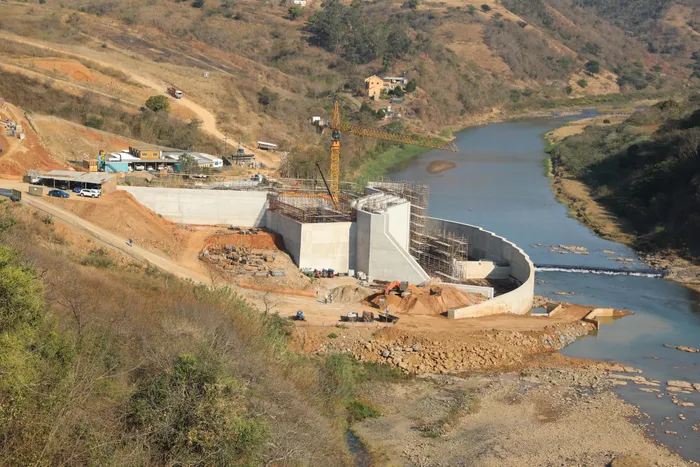
More than R22 billion is owed to water boards, with entities such as Sedibeng Water already bankrupt. Magalies Water and Vaal Central Water were on the verge of collapse, threatening water supplies to entire provinces.
Image: Doctor Ngcobo/Independent Newspapers
SOUTH Africa’s water crisis is spiralling out of control, with nearly half the country’s drinking water now unsafe, wastewater treatment plants collapsing, and billions of rand owed by bankrupt municipalities.
A damning presentation to Parliament’s Select Committee on Water and Sanitation this week revealed a system in freefall, where corruption, incompetence, and neglect have pushed the nation to the brink of a full-blown public health disaster.
The Department of Water and Sanitation (DWS) admitted that nearly half of the country’s water supply systems failed basic safety standards, a shocking increase from just 5% 10 years ago.
The Blue Drop Report for 2023 painted a grim picture: Gauteng, with the most skilled personnel, has the best-performing systems, while the Northern Cape, plagued by severe staff shortages, had the worst. Meanwhile, a shocking 66% of municipal wastewater treatment plants are in disrepair, with more than 60% of municipalities discharging partially treated or even raw sewage directly into rivers.
“We are facing a water pollution crisis,” Deputy Minister Isaac Seitholo told MPs. “Unless we urgently fix dysfunctional wastewater treatment works, the pollution will escalate, with devastating consequences for human health, the environment, and local economies.”
The Vaal River, which supplies about 60% of the country’s population, is among the hardest hit. Despite the launch of the Vaal River Anti-Pollution Forum last October, Seitholo admitted that pollution continued largely unchecked. The Wilge and Vals rivers were also severely contaminated, with sewage spills and industrial waste turning them into toxic hazards.
The EFF’s Khanya Ceza demanded answers: “How can we allow our people to drink increasingly contaminated water while municipalities and industries dump waste with impunity?” He pointed to the SA Human Rights Commission’s findings, which revealed severe water access failures in Bushbuckridge, eMalahleni, and other neglected regions.
The financial collapse of municipalities is accelerating the crisis. More than R22 billion is owed to water boards, with entities such as Sedibeng Water already bankrupt. Magalies Water and Vaal Central Water were on the verge of collapse, threatening water supplies to entire provinces.
To recover debt, National Treasury is now withholding equitable share funds from defaulting municipalities, but this risks crippling service delivery even further. “If these water boards collapse, entire regions will be left without water,” director-general of the DWS, Dr Sean Phillips, warned.
Deputy Minister Mahlobo acknowledged the dilemma: “Municipalities don’t pay, infrastructure fails, and communities suffer. We are trapped in a vicious cycle.”
The Committee heard shocking accounts of delayed mega-projects, rampant corruption, and violent disruptions by construction mafias. The Clanwilliam Dam wall project, initially budgeted at R2.2bn, ballooned to R5.6bn, with only 22% completed. Meanwhile, the Kroonstad wastewater treatment works, which cost R105 million, is non-functional despite years of work.
“Construction mafias have killed workers in eThekwini and Rand Water projects,” Mahlobo said. The DWS has now classified key water infrastructure as national strategic assets, deploying law enforcement to protect sites, but progress remains slow.
Despite ambitious targets to eliminate water backlogs, MPs questioned how this could be achieved when informal settlements expand daily and rural municipalities such as OR Tambo, Amathole, and Sekhukhune remain chronically underfunded.
The MK Party’s Edward Nzimande slammed the DWS for failing to address inequality: “Why are dumping sites and pollution always concentrated in townships and rural areas, while affluent suburbs remain untouched?”
The DWS insisted that new reforms — such as the National Water Resource Infrastructure Agency (NWRIA) and public-private partnerships (PPPs) — would rescue the sector. However, with only 5.7% of infrastructure needs currently funded, scepticism remained high.
The ANC’s Mosimanegape Mmoiemang warned: “If we don’t act now, South Africa will face a water catastrophe worse than load shedding.”
South Africa’s water crisis is no longer looming; it is here. With polluted taps, collapsing sewage systems, and bankrupt municipalities, the government’s response has been too slow, too weak, and too late.
As Deputy Minister Seitholo put it: “If we don’t fix this now, the consequences will be unbearable.” The question is: Will anyone act before it’s too late?